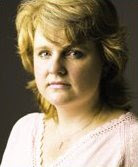Magic and music (2): Arthur Brown
Arthur was playing the Manchester Academy last week, one stop in the intensive national tour he’s currently doing with Hawkwind. My friend Janice and I had had tickets for a while and were excited about attending the gig anyway but, after my conversation with Marc Oberon, I decided to see if I could get an interview with Arthur, to find out what he thinks about music and magic, amongst other things.
Although my e-mail hadn’t reached him and he wasn’t expecting us, when Janice and I enquired at the stage door whether we could have a brief chat with Arthur, we were welcomed in the most relaxed and friendly way. Despite having just delivered a fantastic performance and been cheered by hundreds of fans, the god of hell fire was completely calm, quiet and grounded. He offered us a drink and answered our questions thoughtfully.
All this is to say, Arthur Brown is an extremely nice man, straightforward, unassuming and not at all the stereotypical rock star. While it’s true that, in their fifties and sixties, the wild men of rock tend to tone themselves down – off stage, at least – (Alice Cooper has become a dab hand at golf), in Arthur’s case, I get the impression he’s always been like this. Eccentric, yes; frightening, no.
Arthur has an amazing voice with a huge range. His act is theatrical and stimulating, visually as well as acoustically. Paint on the face, ultra-violet light and several costume changes - though, sadly, no fire (health and safety, I suppose).

Arthur Brown on stage
After that, he moved to Reading University and studied philosophy. He later gained a Masters degree in Counselling and Guidance and is trained in an astonishing array of therapeutic techniques and meditative disciplines.

I asked whether he’d arrived at the hell fire thing from a Christian perspective but Arthur said no, it’s a Pagan thing taken from the Vikings. He’d recognised this as a powerful image and decided to adopt it, with no view to making a point or preaching in any way.
When I ask what his lyrics mean, he tells us that an A-Level class was once studying a poem by CP Snow and came up with six different interpretations of it. They wrote to the poet to ascertain which was correct and he wrote back, ‘How should I know?’. Whatever worked for each individual was right in its own way.
Asked what legacy he would like to leave to subsequent generations, Arthur says he has no interest in bequeathing anything: “Whatever you pass on will fade away and disappear. It’s more important to find a way to be in this moment”. Considering the influence Arthur has had on Alice Cooper, Marilyn Manson, Jimi Hendrix, Mick Jagger, Peter Gabriel and a whole host of other huge names, I can’t help feeling he’s mistaken about the first part, but I take the point that he doesn’t see himself as a missionary.

Arthur backstage
Growing up after World War Two, Arthur Brown and his contemporaries were living on bread and dripping and questioning their belief in life. They were, as he puts it, “looking for something joyful” and, for him, this was music. Describing how he felt as a teenager attending his first live concert, he says, “It was more than excitement. I left my body; all the normal limitations of the mind were gone”.
For me, a really good magic show can induce this feeling and I ask him whether he sees any common ground between music and magic. It seems he doesn’t particularly – not with conjuring. But he reminds us of the distinction between the art of illusion and the real magic (as I have referred to it elsewhere in this blog) of the shaman, which involves such practices as controlling the weather, communing with spirits and healing the ill.
“Music does have a kinship with the magic of the shaman,” says Arthur, “in that both of them can produce resonances in the deepest levels of reality.”
Personally, I believe really well done conjuring can produce similar resonances, by making us question the nature of reality, but I agree with his assessment – and I think Arthur would make a pretty good shaman himself.
Labels: arthur brown, music, real magic

